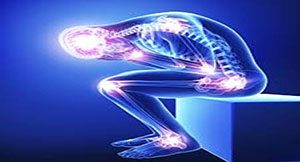
As Physiotherapists, we deal with pain on a daily basis when trying to help our clients achieve their goals. Our bodies’ pain system is very complex and health professionals continue to learn more and more about it. If you have an injury, understanding pain can help aid your recovery and how you manage the pain.
Pain is unpleasant; but this unpleasantness is the very thing that makes it so effective; the system is designed to protect and preserve the body. Pain experiences are an excellent, though unpleasant, response to what your brain judges to be a threatening situation. If problems do exist in your joints, muscles, ligaments, nerves, or anywhere else, it won’t hurt if your brain thinks you are not in danger. In exactly the same way, even if no problems whatsoever exist in your body tissues, nerves or immune system, it will still hurt if your brain thinks you are in danger.
We can broadly categorize pain into 2 groups:
Acute Pain
The type of pain often comes on suddenly, due to an injury or irritation at or around the site of the pain. Chemicals released from damaged tissue (inflammation), send signals through nerves to your brain. At this level, your brain scrutinizes the message, and begins to focus on the area of the body that the message has come from. If this scrutiny senses damage, harm or danger, the brain may interpret this information pain. It is important to realize that context can influence this messaging and its signal. This includes internal factors (e.g. levels of stress and beliefs about pain) and external factors (e.g. history of serious injury or harm).
Chronic Pain
Pain can be ongoing and persist long after the body would normally have healed itself. Chronic pain is a complicated process, and is often due to an interplay of context, hypersensitivity (that can occur at the tissue, neural or brain level) and actual changes in our physiology. The good news is that this can be managed or even reversed. Your Physiotherapist is here to arm you with the tools to manage these issues.
Tip to help you manage pain and recover well
1. Your Physiotherapist can guide you around appropriate exercise, eating well, learning to sleep well, de-stressing and making sure that your mindset is one that will drive recovery.
2. Follow your doctors’ advice regarding medication. Appropriate medication at the right time can help prevent changes in sensitivity to exaggerated messaging, excessive subconscious scrutiny and nervous system changes.
3. Keep active, and learn to slowly expand your tolerances. Avoiding activity can reinforce pain messages, however slowly increasing activity within tolerances can help you to do more with less pain.












